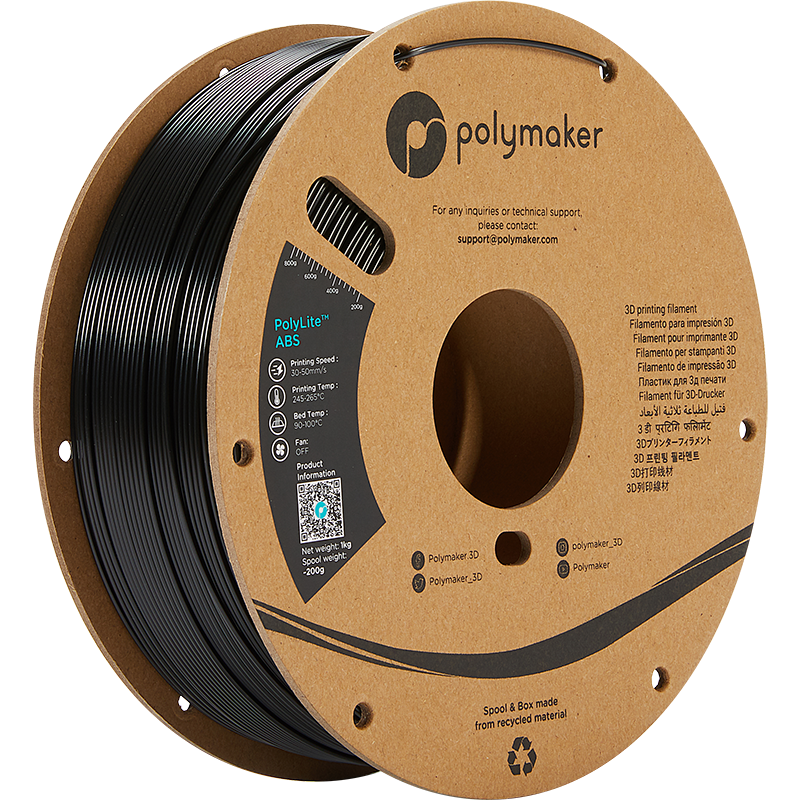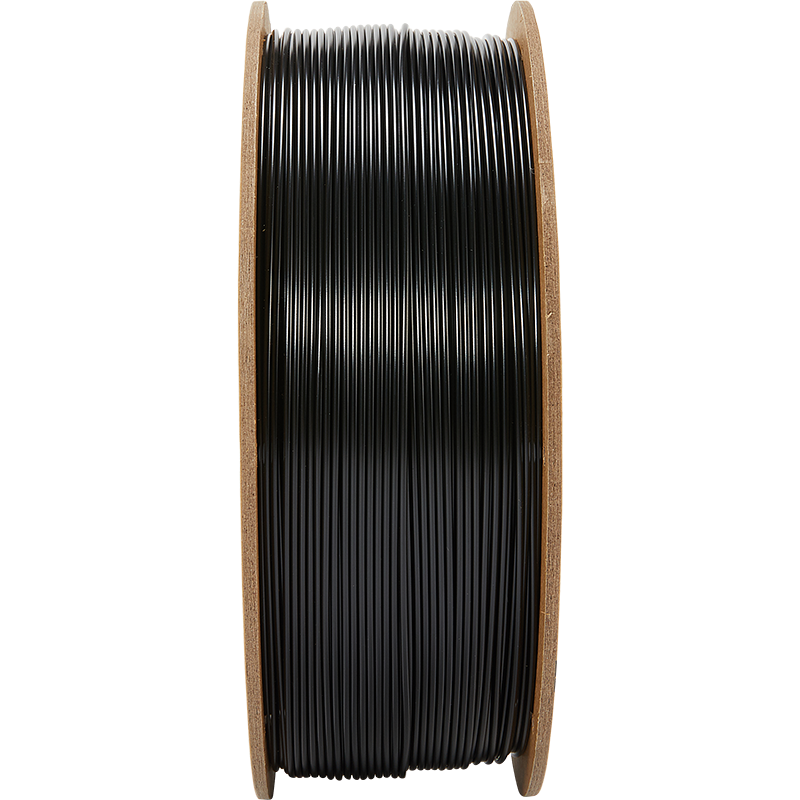Black ABS 2.85mm 1Kg PolyLite Polymaker
| Brand: Polymaker |
| Color: Black |
| Weight: 1 Kg |
| Diameter: 2.85mm |
| Material: ABS |
PolyLite ABS
PolyLite is a family of 3D printing filaments made with the best raw materials to deliver exceptional quality and reliability. PolyLite covers the most popular 3D printing materials to meet your everyday needs in design and prototyping.
PolyLite ABS is made with a specialty bulk-polymerized ABS resin, which has significantly lower volatile content compared to traditional ABS resins. It delivers excellent printing quality with minimal odor during printing.
Which 3D printer can print PolyLite ABS?
Depending on the size of the models you are trying to print, PolyLite ABS can required enclosed 3D printer, or even actively heated chamber.
In general a non-enclosed 3D printer with 90˚C bed temperature and 260˚C printing temperature can handle models smaller than fist size. For bigger prints you will required an enclosed 3D printer (~40-50˚C), for models bigger than ~15-20cm in any direction, it will require an actively heated chamber (~70˚C+).
Using proper bed adhesion can also help printing larger parts without deformation/warping issue.
We can recommend Magigoo or BuildTak as adhesive and bed surface options.
Can PolyLite™ ABS be post-processed with Acetone?
Yes, PolyLite ABS can be smoothed with acetone.
WARNING: Acetone is a dangerous chemical, please handle it with the necessary safety precautions.
We recommend Polysmooth as a safer alternative to create smooth surface models.
Printing Settings
Printing Temperature: 245˚C - 265˚C
Bed Temperature: 90˚C - 100˚C
Printing Speed: 30mm/s - 50mm/s
Fan: OFF
Direct Drive:
Retraction Distance: 1mm
Retraction Speed: 20mm/s
Indirect Drive:
Retraction Distance: 3mm
Retraction Speed: 40mm/s
Drying Settings: 70˚C for 6h
(Only if the material has absorbed moisture)
Mechanical Properties
Young's Modulus:
2174 ± 285 Mpa
Tensile Strength:
33.3 ± 0.8 Mpa
Bending Strength:
72.8 ± 0.7 Mpa
Charpy Impact Strength:
12.6 ± 1.1 kJ/m2
Thermal Properties
Glass Transition Temperature:
101.0˚C
Vicat Softening Temperature:
104.0˚C
Melting Temperature:
N/A˚C







